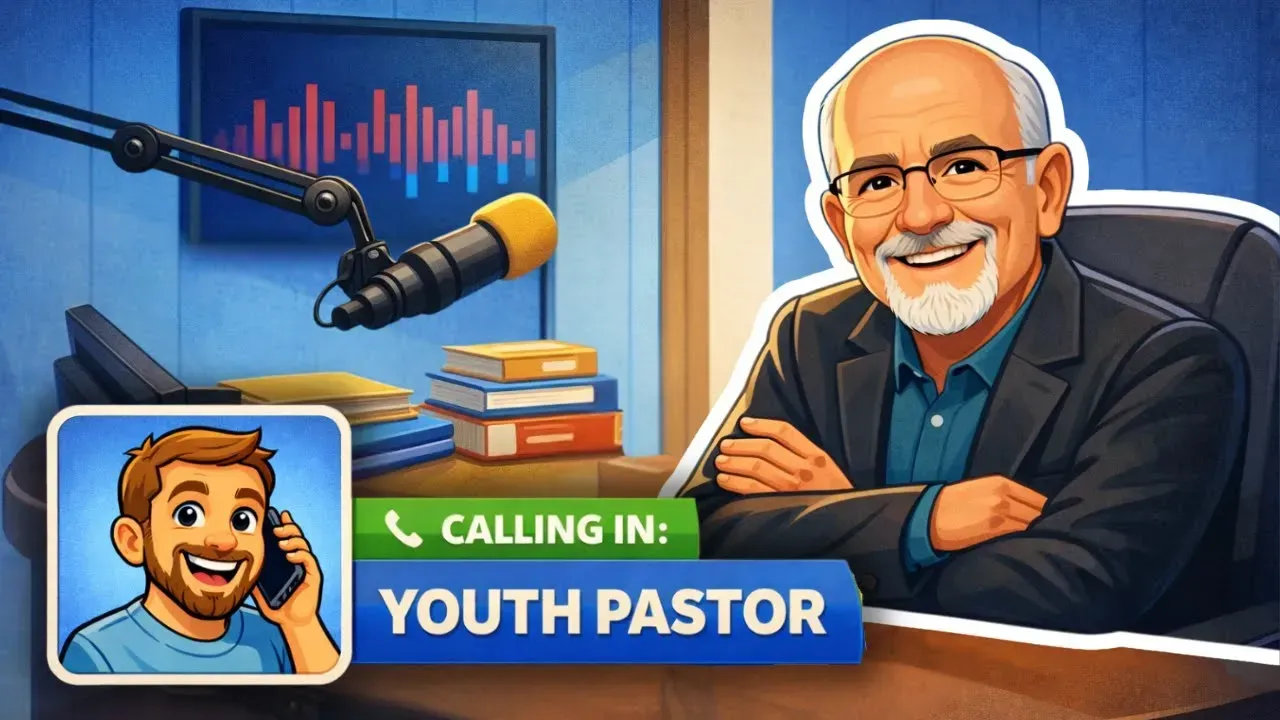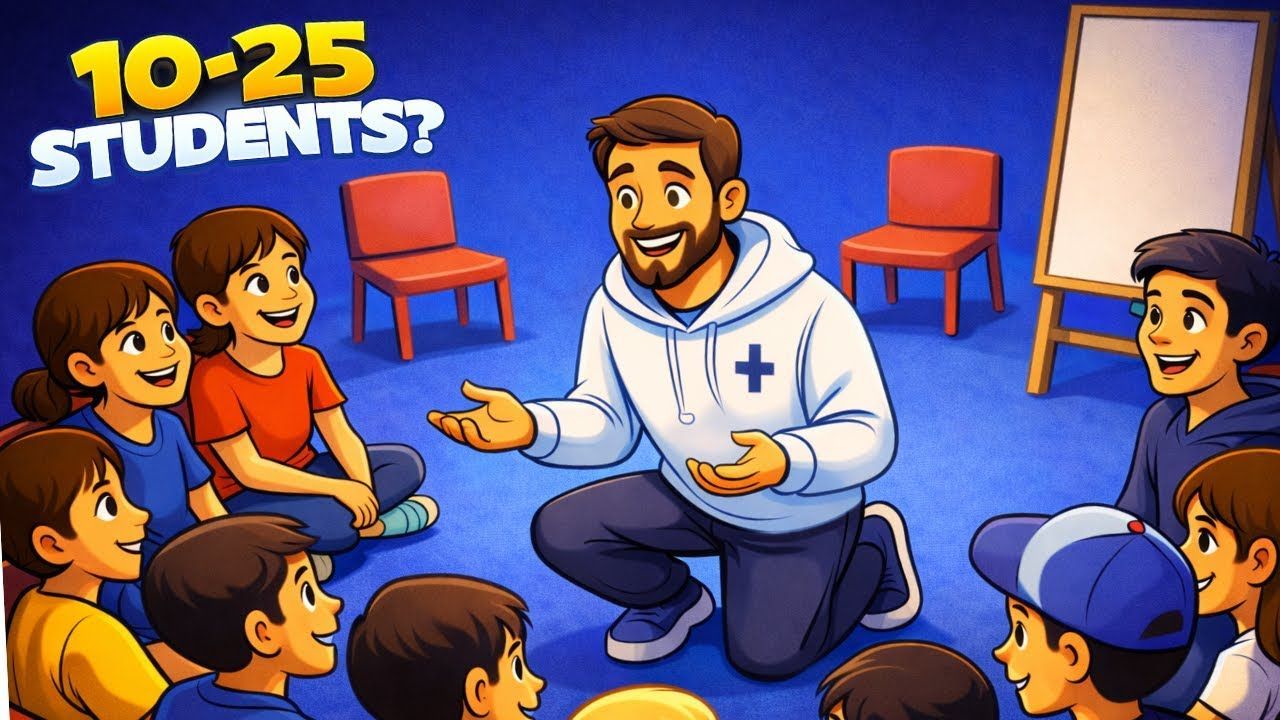Apostle Paul's Top 4 Rebukes of Modern Youth Ministries REVEALED
What Would Paul Say to Today's Youth Groups?
Check out the podcast here!
If the Apostle Paul were to write a letter to American youth groups today, would it be a letter of encouragement or correction? Would he celebrate our passion or challenge our priorities? In a world where current TikTok trends often overshadow biblical knowledge, where youth group can feel more like entertainment than spiritual formation, and where social media "clicks" shape community more than Christ does, it's a question worth asking. This isn't about shaming, but about sharpening, because reaching the next generation requires more than just fun vibes and pizza nights—it requires truth, and Paul wouldn't hold back.
Paul's perspective might be hard for us to grasp. He might wonder, "What do you mean there are Christians who don't do anything?" He'd see how easily young people recall memes and trends, yet struggle to locate basic scriptures. So, what specific truths might Paul address if he were speaking to American youth ministries today?
1. The Call for Biblical Literacy
Paul would undoubtedly challenge the lack of biblical literacy among students. In 2 Timothy 3:14-17, he emphasizes continuing in what has been learned from childhood, highlighting that "all Scripture is breathed out by God and profitable for teaching, for reproof, for correction, and for training in righteousness, that the man of God may be complete, equipped for every good work."
Many students, even those who have grown up in the church, get lost when asked to turn to a specific passage. Yet, they can easily memorize song lyrics or social media trends. Paul would likely ask why these kids know all the latest internet fads but can't find books of the Bible. He'd remind us that we shouldn't have low expectations for teenagers, as some in ministry suggest. This isn't just about knowledge; it's about the heart. As Paul might paraphrase, "Do not be infants tossed by every wind of TikTok theology." We must equip students for the word of Christ to dwell in them richly, not fleeting online content.
2. The Importance of Spiritual Discipline
Paul would also emphasize the lack of spiritual discipline. In 1 Timothy 4:7-8, he instructs us to "train yourself for godliness; for while bodily training is of some value, godliness is of value in every way, as it holds promise for the present life and also for the life to come." Many students are incredibly devoted to athletic training, which has temporary value. But godliness prepares them for eternity.
Students today are often spiritually malnourished and inconsistent in practices like prayer, reading, and worship. Our society increasingly structures everything for them. While we can't meet daily for scripture memorization, we can equip them to take ownership of their faith. If students are just "attending when it's convenient," are they truly training for eternity? Paul might ask, "Athletes train for a crown that fades. Are you training for eternity or just attending when it's convenient?"
3. From Consumer Christianity to Servant Leadership
Paul would challenge our tendency towards consumer Christianity over servant leadership. In Philippians 2:3-7, he exhorts us to "do nothing from selfish ambition or conceit, but in humility count others more significant than yourselves," pointing to Christ's example of emptying himself and taking the form of a servant. Paul might struggle to understand how there could be Christians who "don't do anything"—who don't grow, serve, or share their faith. He'd be baffled by the apathy and complacency that can creep into our Christian walk.
Youth group is often treated like a product to be consumed, not a mission to join. If we ask students what they want, it will likely be entertainment, not spiritual formation. Paul might ask, "Have this mind among you, not 'What can I get out of youth group?' but 'How can I serve like Christ did?'" The goal is to move youth groups from being mere programs to being groups of middle and high schoolers actively working to share the Gospel in their world.
4. Overcoming Disunity and Cliques
Finally, Paul would address disunity and cliques within the group. Galatians 3:27-28 states, "For as many of you as were baptized into Christ have put on Christ. There is neither Jew nor Greek, there is neither slave nor free, there is no male and female, for you are all one in Christ Jesus." If someone were to walk into your youth group, would they see a unified body or a collection of social cliques, mirroring a school lunchroom?
While it's natural to gravitate towards those with similar interests, these preferences should not create division or hinder the spread of the Gospel. Paul might paraphrase, "Was Christ divided? You are one body. Stop acting like strangers in your own family." As youth leaders and parents, we need to challenge students, like Ryne challenges his son, to engage with everyone and not act like strangers in their own family.
A Glimmer of Hope
Despite these challenges, Paul would likely offer encouragement. There seems to be a growing movement away from an "attractional" model that burns out leaders and produces little fruit. Many youth ministries are shifting back to what truly matters: spiritual formation and equipping students to live out their faith. It's a realization that "if you build it, they will come" simply isn't working.
Ultimately, while it's interesting to consider what Paul would write, we must remember that Jesus is present with us now. He sees how we operate, our priorities, and our passions. Would Jesus approve of how we spend our time in youth ministry? If we envision Him helping us plan programs, study sermons, or equip students to share the Gospel, what would that look like? Let's adopt the mentality of adding "with Jesus" to every task—planning lessons with Jesus, spending time with students with Jesus—because He is ever-present in our lives and ministries.
What changes do you think Paul would want to see in youth ministries today?New Paragraph











